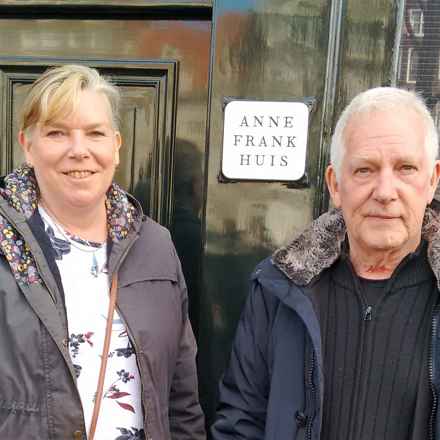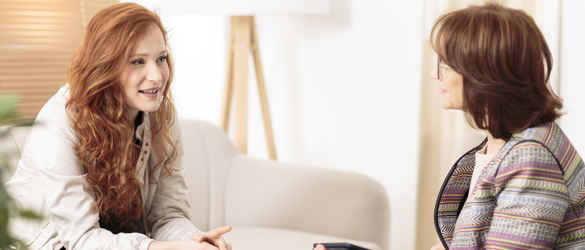'It's very important that I make the best of what I can see and do now'
Posted: Thursday 25 April 2024
John has been creative for as long as he can remember, and is determined to keep doing what he loves, while adjusting to life with sight loss.
Be it poetry, illustrating or painting, John has been keen to continue doing the things he loves during retirement, despite his dry age-related macular degeneration (AMD) diagnosis in 2018.
He said: “It's the message of being able to do something, being able to carry on doing something you've always enjoyed, even though you live with sight loss and it's very important. I think that eventually I know that I will lose the ability to do these things, so it's very important that I make the best of what I can see and do now.
“I notice things now that I never looked at before. We walk our dog every morning in the woods and I see things that before I would have just passed by, really. But now I look at things differently, because I think to myself, well, maybe in two or three years’ time I won't be able to see them.”
Inspiring others
He now hopes to inspire others through his work.
John said: “When you're a creative type, you just want people to look at your drawings or read your poetry and to appreciate it. It’s good when someone on Facebook tells me they like something I’ve done and shared, but it’s just to help make other people happy.
“One of the things I think when I'm putting a poem together is, ‘will somebody read this and enjoy it and like it?’ But also, there are times when you think, ‘will they get anything out of it?’ Sometimes I think that somebody might get inspiration from something that's amused them and pleased them.”
The 73-year-old has written about sight loss in his poetry including one piece which compares falling leaves to dancing fairies – a nod to visual hallucinations caused by sight loss, known as Charles Bonnet syndrome.
John said: “I have done a few about sight loss. I think at the moment I'm a bit obsessed with fairies. Not that I've seen any! And one of my poems is about the fairies dancing in the air when in reality it’s the leaves falling.
John was also a cartoonist during his days in the Royal Navy, alongside his job as a weapons engineer. Through his life experiences, and as a result of 20 years in the Armed Forces, he has found a way of putting sight loss into his own perspective.
Support is so important
“I’ve never been worried (about my AMD), not particularly. I’ve just taken it in my stride. I was in the Navy for many years and I saw guys coming back from Afghanistan in very bad ways. I see my condition as quite slight in comparison, it’s easier to live with than missing limbs,” he said.
But John has benefitted from the support available to him. His wife Anne shares how he initially came to terms with his sight loss.
She said: “It was important for John to actually start telling people that he couldn't see. It's only in the last two years that we said to his mates, some of his Navy mates who are around, and we’d ask if they could help build the log shed for example. John tried to do things but he needed to ask for help, whereas two years ago he wouldn’t have wanted to ask.”
Since then, he has been very grateful to many different organisations for signposting and support.
John said: “There are so many facilities that I wasn't aware of and technology has helped because now if I want to listen to a book, I can go to the RNIB website and just download a book to my phone or I can ask Alexa. It's made it a little bit easier.
“I can still use the computer because I've adapted my hardware and my software and so I've adapted what I do technique-wise. I've adapted it so that I can still draw and paint on the computer.
“Sometimes it's easy, but sometimes it's quite difficult and quite frustrating. For example, with accessibility on computers and tablets, quite often you need to be able to read copious amounts of information in order to set up your accessibility.”
But it’s the help and support of others which John is now a big advocate of.
He said: “I would say ‘don't panic’, don't panic because support is available and there are many thousands of people with this condition and other conditions leading to sight loss. Seek out the support and take whatever help is offered, make the best of it and certainly don’t keep it to yourself.”
John's poems can be read on his website, where he also shares his passion for photography and illustrating.
Support for you
We provide free information and support to those with macular disease, along with their family and friends, to help people keep their independence.
Using technology
There are many adaptations to technology to help you navigating the increasingly technology filled world.




